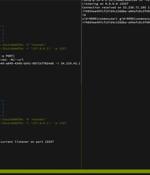Security News

Microsoft on Tuesday said it addressed an authentication bypass vulnerability in Jupyter Notebooks for Azure Cosmos DB that enabled full read and write access. The tech giant said the problem was introduced on August 12, 2022, and rectified worldwide on October 6, 2022, two days after responsible disclosure from Orca Security, which dubbed the flaw CosMiss. "In short, if an attacker had knowledge of a Notebook's 'forwardingId,' which is the UUID of the Notebook Workspace, they would have had full permissions on the Notebook without having to authenticate, including read and write access, and the ability to modify the file system of the container running the notebook," researchers Lidor Ben Shitrit and Roee Sagi said.

Analysts at Orca Security have found a critical vulnerability affecting Azure Cosmos DB that allowed unauthenticated read and write access to containers.Named CosMiss, the security issue is in Azure Cosmos DB built-in Jupyter Notebooks that integrate into the Azure portal and Azure Cosmos DB accounts for querying, analyzing, and visualizing NoSQL data and results easier.